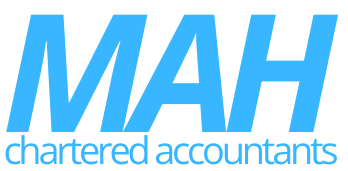EMI schemes (Enterprise Management Incentives) are tax advantaged schemes offered by H M Revenue & Customs to small and medium sized businesses (“SME”) for incentivising the SME’s employees.
EMI schemes are share option schemes which fundamentally provide tax savings for both the employee and the SME whilst also providing the facility for the SME to incentivise and reward its employees.
Current perception of EMI schemes
It is a common misconception that EMI schemes are complicated and EXPENSIVE! This is not the case.
Whilst the set-up of the scheme may cost a certain amount of money, the tax advantages achieved can far outweigh the scheme’s implementation costs.
It is true that the rules surrounding EMI schemes are detailed and may be viewed as complicated. However, the government has put in place such rules so that the maximum number of SMEs and employees can benefit from the available tax advantages and, in turn, incentivise SMEs and employees for commercial progression.
Advantages of using an EMI scheme
The employee will not be subject to any PAYE or NIC on acquisition of shares when he/she exercises the share options. The only times PAYE/NIC may be payable are if the share options were granted at a discounted value or if the share options are exercised after a disqualifying event.
In comparison to a simple reward of shares (which triggers a PAYE/NIC liability on acquisition or vesting), the EMI scheme provides a tax free environment of growth so that the employee can benefit from a tax free uplift in value of his/her shareholding.
The company also benefits from a Corporation tax saving on the value of the shares passed to the employee when the share options are exercised. It is therefore a win-win situation for both the employer and employee.
If the employee sells his/her shareholding then there may be a Capital Gains Tax liability that arises. However, being in an EMI scheme also enables the employee to take advantage of Entrepreneurs’ Relief. Entrepreneurs’ Relief means that the employee will only pay tax at 10% on the gains made from selling the shares.
Certain conditions of the EMI share option scheme
Employees: generally only those employees who work for 25 hours or more per week are eligible for EMI options.
Employee: the total market value of an employee’s unexercised share options cannot exceed £250,000 at any given time.
Company: the total market value of all unexercised EMI share options cannot exceed £3m at any given time.
Company: the SME must not be under the control of another company.
Company: the company must have Gross Assets of less that £30m.
Company: it must have fewer than 250 full time employees.
Company: it must be carrying out a qualifying trade as its main purpose.
Shares: the shares subject to the EMI option plan should be ordinary, non-redeemable, and fully paid up shares.
Grant: the options must be granted for bona-fide commercial reasons and not to avoid tax.
Process
The process to get an EMI scheme set up for an SME starts with understanding a client’s needs and what outcome is sought. Once this has been established, we can start structuring the EMI scheme which entails communicating with H M Revenue & Customs and putting in place required share option agreements with the relevant employees.
Communication with H M Revenue & Customs is for approval of scheme qualification as well as obtaining their agreement to the company’s share valuation. The most advantageous valuation is always sought for the client company.
Once the above are in place, the company is in a position to grant the share options to its employees. These grants should then be notified to H M Revenue & Customs within 92 days in order to preserve the related tax advantages.
Annual filings with HMRC are also required for an EMI scheme so that HMRC can be kept informed of the scheme’s activities.
Further information
HMRC’s website also provides brief details on the benefits of using an EMI scheme.
Where can MAH help?
We can provide you with a free, no obligation consultation for initial advice on the EMI scheme and can demonstrate how it may be beneficial for your company. There are both, financial and non-financial benefits for offering employee incentives under the EMI scheme.
To book your consultation with our tax specialist Prashant Malde, please contact us.




